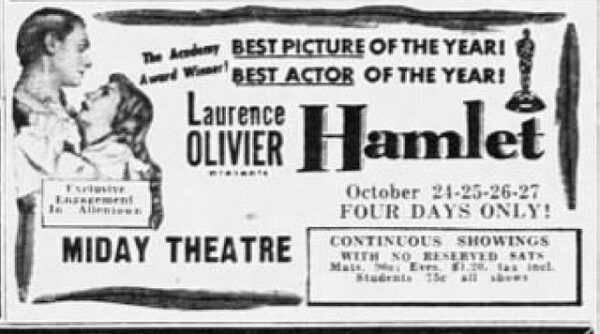“To be, or not to be?” That is the question. When it comes to William Shakespeare, his enduring plays continue to stand the test of time, both on stage and in film. Furthermore, the history of theater is about as rich and as complex as the history of the world. Nevertheless, great authors essentially gave the word artistic writing before their normally natural endings. In fact, many scholars and general readers might agree that Hamlet is the best drama of all time.
Because of the compelling story, filmmakers adapted Hamlet for the silver screen time and time again. In fact, the 1948 version earned Laurence Olivier an Oscar win as well as the coveted “Best Picture” Academy Award. During the 1990s, Mel Gibson and Kenneth Branagh both made film versions of Hamlet that essentially look like contemporary period dramas (in terms of the visual style).
Unfortunately, filming Hamlet does create challenges for filmmakers. For example, the original stage play usually has a 4-hour performance time (when actors perform that play on the stage). Additionally, Hollywood studios sometimes hesitate when filming Shakespeare plays because of the complex rhetorical language that many modern audiences might not potentially understand. Fortunately, though, film versions of Hamlet do look and feel beautiful because of how cinema can metaphorically transport audiences to experience the classic story, just as how Elizabethan audiences watched the play during the reign of Elizabeth I.
Finally, when it comes to William Shakespeare, some of his lines are so clever that they have entered the modern lexicon. In fact, even if modern audiences do not bother reading the original plays and/or watch film versions of his work, they could still know at least a little bit of each classic play just by hearing the well-known titles.
“To be or not to be?” involves much more than simply being. That is because every human being might (or might not) wonder what to do in life, just like how the Prince of Denmark questioned his own existence in a play that delves deep into nature of personal and overall well-being.
—
Previously Published on movieboozer.com
—
